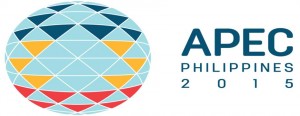
MANILA, Philippines – Scientists, government representatives, academics and policymakers throughout the Pacific Rim will converge in Manila on November 2 to 4 for the Asia-Pacific Economic Cooperation (APEC) Climate Symposium to discuss emerging issues in climate prediction and its applications.
The symposium, an annual event held since 2005 by the APEC Climate Center (APCC), aims to enhance the ability of economies and societies to cope and respond to weather and climate-related disasters, and especially those that will be exacerbated by climate change. The activity also contributes to the strengthening of the regional climate network in science and policy.
With the urgency posed by climate change, the symposium heeds the call to action by discussing practical measures and policies to mitigate and respond to hydrologic disasters. It hopes to integrate the perspectives of distinguished scientists and practitioners and managers from national and international organizations around the Asia-Pacific region.
During the symposium, the delegates are expected to explore measures to maximize the utility of climate information for the benefit of APEC economies and beyond.
The Philippines, as an emerging economy, is not an important emitter of greenhouses gases. Nevertheless, the country is highly vulnerable to climate change, because of the diversity of its ecosystems, susceptibility to natural disasters, drought and desertification-prone areas, urban areas with problems of air pollution and mountainous ecosystems.
As a manifestation of the country’s commitment to engage in multilateral efforts aiming to address the global problem of climate change and achieve sustainable development, the Philippines has participated in the discussions and negotiations leading to the ratification of various international agreements. These international agreements are geared towards the mitigation of the effects of climate change and the strategic adaptation to the conditions.
At the institutional level, the Philippines was one of the earliest countries to recognize the importance of a systematic institutional response to the problem of climate change. The creation of the Inter-Agency Committee on Climate Change (IACC) on May 8, 1991 under the Environmental Management Bureau of the Department of Environment and Natural Resources, was a concrete manifestation of the Philippines’ attempt to promptly address the issue of climate change.
The ultimate aim of the committee is to harness and synergize thevarious activities being undertaken by the national government and civil society in response to the crisis posed by growing problem on climate change.
The essential mandate of the IACC is to perform various coordinative, development and monitoring functions with respect to activities related to climate change in the country. As an organization that is at the forefront of advancing the government’s climate change agenda, the IACC likewise formulates policy actions and recommendations while at the same time assumes a very significant role in terms of shaping the Philippines’ national positions in the various international negotiations that aim to mitigate the effects of global climate change and prevent the worse possible consequences of this.
As one of the first countries to sign the United Nations Framework Convention on Climate Change (UNFCC) in 1992, the Philippines expressed adherence to the principles of sustainable development and environmental preservation based on the notion of equity and the unique capabilities of the participating countries. More specifically, Article 3 of the UNFCC states that countries who have aligned themselves with the mandates set forth by the Convention “should protect the climate system for the benefit of present and future generations of humankind, on the basis of equity and in accordance with their common but differentiated responsibilities and respective capabilities”.
The Clean Air Act of 1999, also known as Republic Act 8749, was enacted to arrive at an effective air quality management program that will mitigate the worsening problem of air pollution in the country. Reinforcing the country’s drive towards a healthier environment was the enactment of the Solid Waste Management Act of 2000 (RA 9003) that aims to provide a comprehensive solution to the country’s garbage problem.
In 2000, the Philippines forwarded to the UNFCCC its Initial National Communication, the milestones of the country insofar as accomplishing the objectives of the Convention are concerned.
More specifically, this report presented the gains made in the fields of greenhouse gas abatement and inventory. Also noted were gains significantly achieved in strengthening institutions and processes in relation to the mitigation, prevention and adaptation initiatives in the country.
Recommendations of the report include the institutionalization of the process of greenhouse inventory, particularly among the government agencies concerned and greater involvement of the academe through related studies. More studies on adaptation and vulnerability under climate change conditions are also suggested.











Leave a Reply